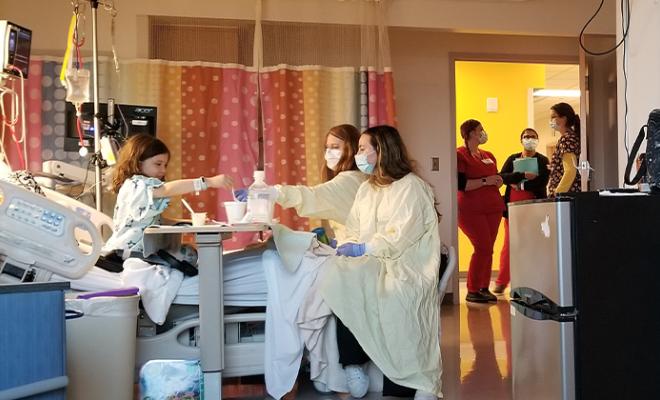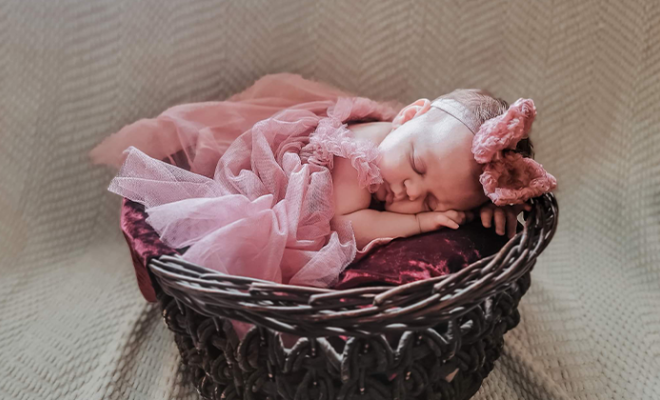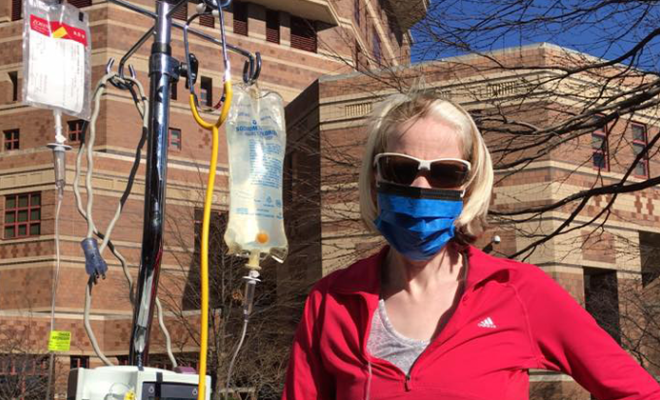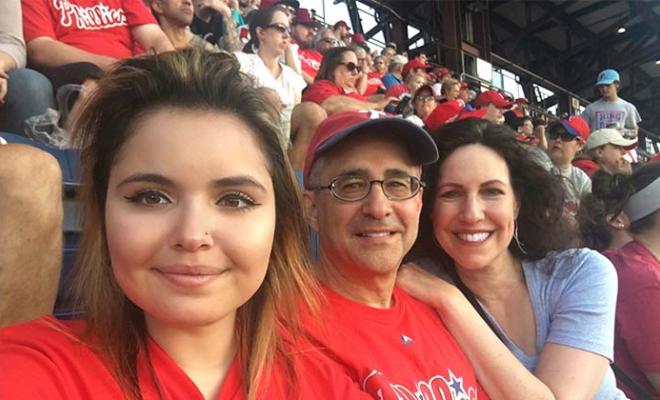I first began grieving for my daughter, Eden’s, diagnosis with cystic fibrosis four months before she was born. We encountered a vague abnormality during a prenatal scan when I was 18 weeks pregnant. Her dad and I would later find out that this was a type of bowel obstruction called a meconium ileus and dealing with it would become a surgical emergency. All of that took place nine years ago; innumerable emotions resurface when I consider how the storybook life we expected to live with our baby was already being totally rewritten.
During their preschool years, children are still in the self-centered stage of development. Their brains haven’t yet begun to perceive the world from points of view other than their own. My husband and I intentionally utilized this time to create an environment for her that normalized the day-to-day management of CF (at least by her egocentric standards). We kept her inhalers on the coffee table in the same decorative bowl that held the TV remotes. Enzymes were renamed “crunchies,” and even the daycare employees knew them by only this name. Her favorite stuffed animal wore a handmade purple vest that I bought from a crafter online. Eden grew through this stage of life and was comfortable with the routine she knew.
Everything began to change when she turned 5 in the spring of 2018. She was admitted to the hospital the day after her fifth birthday and endured an unexpected trauma. Until that incident, Eden had always been quick to declare that she was born with a disease called “six-tic five-rosis” with the same level of enthusiasm that she’d also flaunted when telling strangers about her cat or her favorite color. This long word she always mispronounced suddenly carried a tremendous emotional weight. CF became something to hide, something shameful. It was now her turn to grieve for her diagnosis.
The events of that hospitalization were the catalyst for her awakening to an insecurity that continued to worsen, especially that fall when she entered kindergarten. What had begun as occasional fights at home about vest treatments and Tobi® nebs evolved into her hiding enzymes from her classmates and crying during snack time, meandering away from group activities, and biting holes in the sleeves of her shirt when she was reprimanded by her teacher. CF dictated her routine outside of school, so she intentionally sought disruptive ways to gain control of her routine at school.
I enrolled her in therapy with a licensed clinical social worker at the same practice where I also received therapy. Thanks to her social worker’s help, Eden was able to move past the lingering trauma from the spring’s hospital stay. Despite that area of relative recovery, she continued to act out. She now knew that many aspects of life with CF -- which she had previously taken for granted as “normal”-- were simply unfair. There would be more sputum cultures and bronchoscopies and enemas and IV sticks. There would be more cancelled birthday parties. There would be more hospital stays.
I discussed my concerns about her behavior at a CF care center visit. Our family had always known that her care team was fully equipped to help us fight bacterial infections in her lungs, but we were now encouraged to learn how well they were also prepared to help us fight the negativity that infected her spirit. They taught us that as CFTR modulators were becoming more widely available to treat the underlying cause of organ damage, the national scene was shifting some of its focus from drug development research to issues of mental health and medication compliance. In accordance with this trailblazing effort, our local clinic had actually recently received a mental health coordinator grant from the CF Foundation which would subsidize their social worker, whom Eden had known since she was 3 years old, to provide individual counseling to CF patients.
It was a perfect match from the start. Seeing someone who was already intimately acquainted with the physical and subsequent emotional effects of the disease made a tremendous difference. We didn’t have to explain Eden’s medical history because she had witnessed firsthand how things had transpired to that point.
The social worker understood and echoed our fear that children who have not come to accept the unfairness of their situation are prone to grow into teens and adults who neglect their CF responsibilities, which can lead to irreparable physical damage. It is a scene we have seen play out for so many others with CF and is one that my husband and I are doing our utmost to avoid for our daughter.
Over time, the social worker gently and skillfully unraveled Eden’s tangled mess of fear and frustrations, armed her with tools to assist with coping, and assured her of the care and concern of an army behind her. The behavioral interferences that plagued us for months gradually subsided. She never resumed proudly proclaiming her diagnosis as before, but Eden quietly readapted to the normalcy of day-to-day preventative care. She was readmitted to the hospital several more times without allowing such events to upend the dynamics of home or school. Kids are amazingly resilient, especially the ones with CF who have known no other life.
Within the world of CF management, Eden's story is simultaneously unique and commonplace. CF life is hallmarked by a series of strange rites of passage. Three weeks of Eden’s second grade school year took place in a hospital room instead of a classroom. The veins in her arms became too scarred for more PICC lines, so a port was placed in March. She was diagnosed with CF-related diabetes in September and groans her disapproval every morning when she receives her insulin shot. I am not naive enough to believe that there won’t be more seasons of grief in the days ahead. Though Eden’s time in therapy ended years ago, the social worker vigilantly monitors her social and emotional responses to the progression of her disease and is always ready to jump to action on our family’s behalf. Together, we are all committed to raising a well-adjusted adult who respects her disease but lives fully and fearlessly despite it. To all the other fighters out there, godspeed.
Interested in sharing your story? The CF Community Blog wants to hear from you.





